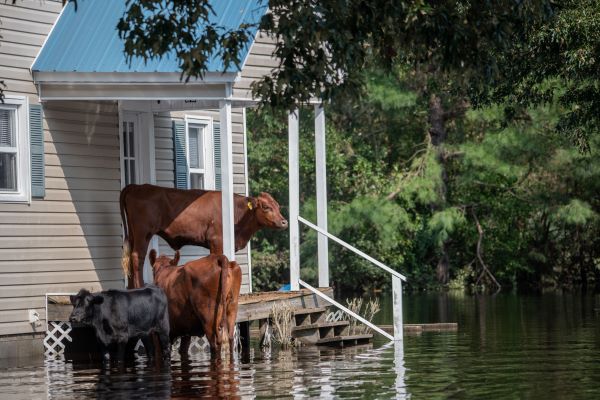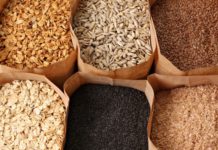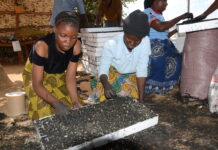Agriculture dominates sub-Saharan Africa. Although 52% of all employed people in this region are connected to farming, the continent has the lowest agricultural productivity rates. Environmental challenges are one of the many reasons for this concerning trend — flooding in particular.
How can African farms be less vulnerable to flooding? These initiatives have made the greatest impacts thus far.
Waterway Management
The main reason for African agriculture’s flooding problem is poor waterway management. Lakes, rivers and streams are full of plastic pollutants and other forms of debris that clog waterways and drainage systems. This causes water levels to rise during floods, eventually resulting in more flooded croplands and roads.
As the effects of climate change worsen, local authorities are falling even further behind as they have more flood zones to monitor. One possible solution is snake-like mobile dams made of synthetic rubber tubes that can easily be transported to different water sources. Many European countries, including the flood-prone Netherlands, already use this technology.
African farms would also greatly benefit from more levees, embankments and floodwalls. These solutions haven’t been possible in previous years due to poor infrastructure in sub-Saharan countries. Building these structures is much more feasible with more financing and help from environmental groups. Floodwalls are particularly useful because they are used for temporary applications similar to mobile dams.
Land Management
Better land management is also necessary to protect African farms from flooding. It starts with small-scale efforts such as incorporating living plants year-round instead of seasonal ones to ensure the soil absorbs water. Leaving crop residue behind also improves the soil’s organic matter levels and water-holding capacity.
Widespread sustainable irrigation methods such as drip irrigation and drought-resistant crop rotation would also make a huge difference. Drip irrigation produces a slow drip of water directly onto the plant roots, saving as much as 80% of water used in conventional irrigation. It would also diminish run-off and surface evaporation, decreasing flood risks.
Planting pits are another emerging irrigation technique in which farmers sow small plant groupings in a circular area below sea level that catches rainwater. Containing water this way lightens the burden on local waterways and keeps water levels consistent during the rainy season.
These flood prevention efforts would also help address other issues plaguing Africa, namely food and water shortages. Fewer farmlands exposed to frequent flooding will enable countries to grow more crops and develop healthier soil. This process will be slow-going, however. The continent still needs more immediate solutions.
Emerging Technologies
Now that African countries are getting more global assistance, they have been able to implement new systems such as pump stations and flood mapping technology. Pump stations protect industrial, commercial, agricultural and residential areas by collecting rainwater and discharging it to a designated dump site away from the community’s infrastructure.
Flood mapping technology predicts when and where flooding is most likely to occur. Timeliness is everything when responding to natural disasters. Local officials can use this technology with mobile dams and floodwalls to plug up flood-prone areas before water levels start rising.
Awareness will naturally increase among citizens as Africa adopts the same flood mitigation technologies as other developed countries. Farmers will learn how to master new agriculture techniques and maximize their benefits. Flood prevention efforts will improve as they gain more education and expertise.
Flood Prevention Is a Slow Battle
It’s easy to talk about the benefits of better water and land management, but implementing these strategies will be difficult due to Africa’s weak infrastructure. Flood prevention in this continent will be a slow battle requiring daily efforts from city officials and small-scale farmers.

Jane is an agriculture and environmental journalist and the founder and editor-in-chief of Environment.co, where she covers sustainability and eco-friendly living.








